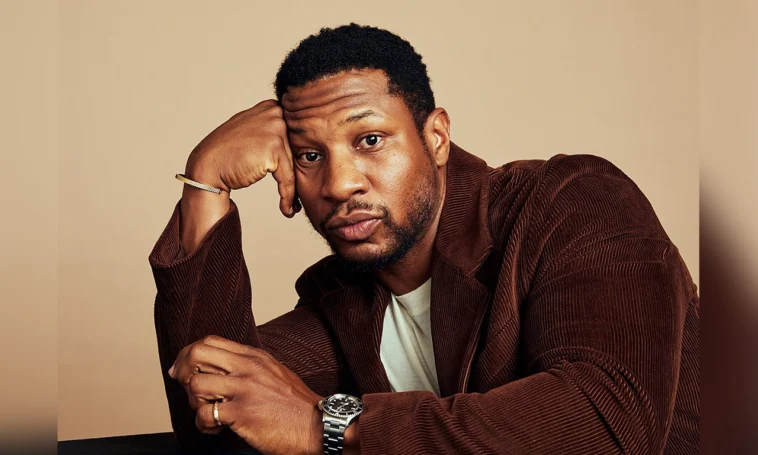Due to his defense team’s attempt to overturn the verdict, Jonathan Majors’ sentencing date has been moved to April 8.
Majors, who was in “Creed III,” was found guilty of second-degree harassment and reckless attack in the third degree in December for something that happened on March 25 with his ex-partner, Grace Jabbari. The charges could lead to a year in jail.
Majors appeared electronically for the hearing, originally planned for Tuesday, after prosecutors asked more time to reply to the defense motion submitted on Monday.
Majors’ attorney, Priya Chaudhry, filed a move to overturn the guilty findings and acquit. It claims the jury was given inconsistent assault counts, resulting in a reckless assault conviction but no purposeful assault.
The defense further claims that the prosecution failed to prove reckless assault and harassment because the act was presented as purposeful rather than reckless.
“A careful analysis of the trial record shows that there is quite simply no evidence that Mr. Majors acted recklessly,” the motion says.
The defense claims that Majors’ actions were meant to remove himself from the situation, not annoy or alarm Jabbari.
The district attorney’s office representative said, “The Court has already heard and rejected the arguments supporting this motion when the defense originally raised them during the trial.” The prosecution should respond in detail by March 5.
Judge Michael Gaffey said he will rule on the motion by April 1, before the rescheduled sentence.
Due of his lack of criminal background, legal experts first thought Majors would avoid prison. In a Good Morning America interview, he denied wrongdoing, raising sentence concerns.
The incident cost Majors his job at Marvel Studios and the Dennis Rodman film “48 Hours in Vegas.” His previously shot film, “Magazine Dreams,” needs a distributor.
Jonathan Majors’ case highlights the complexity of assault, harassment, and accountability in the entertainment business and legal system.
It emphasizes the need for extensive judicial scrutiny and due process in criminal cases, especially those involving public personalities.
Sentencing is delayed to allow for more review of defense and prosecution evidence and arguments. It is essential to guaranteeing fair and legal justice.
The publicity surrounding Majors’ legal issues has affected his career. The actor suffered from being dropped from important projects, having his films shelved, and seeking new distribution partnerships.
However, the judicial processes will have far-reaching effects for Jonathan Majors and the discourse about domestic violence, accountability, and the entertainment industry’s response.
As the case unfolds, it reminds us of the difficulties of balancing law, celebrity, and public perception. It stresses the significance of accountability and transparency in handling misconduct charges, regardless of professional status or public notoriety.
Despite these advances, ensuring a fair and unbiased judicial procedure that respects all parties’ rights remains the priority. Jonathan Majors’ case will demonstrate the court system’s ability to enforce the law, protect victims, and give the accused due process.



Join the Community and Be a Part of the Conversation
You must be logged in or registered to post a comment.